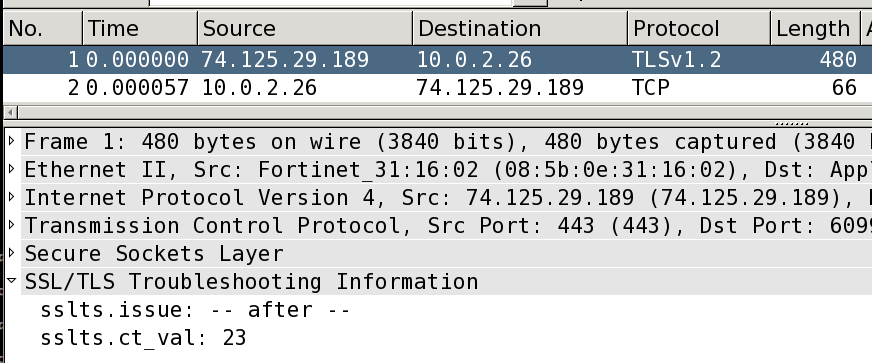

This contains a type field that I have to read to know the type of the message message. The operation message is always of the same message-type. header length -> 16bit, length of header message.

dst -> 16bytes, identifier of destination.total length -> 32bit int, total length of the message.I have a TCP protocol where a request contains the following data: I hear Michel Fagan speaking.… twitter.I'm trying to create a protocol dissector in lua, but I can't find a way to get the data from a previously decoded protobuf to decode the next one within the same request. I was biking around and started to listen to the last episode of darknetdiaries. > Analyzing Cobalt Strike Beacons, Servers and Traffic w/ DidierStevens #brucon travelplug usb charger A and C low standby power 236 mW 23 hours ago.Twitter sans_isc: Curl's resolve Option i5c.us/d29132 14 hours ago.Other changes can be made, but these have to be made in the code of the dissector itself: The separator character (pipe character | in this example) is something that can be configured: With Lua dissector a, the data is dissected into different fields: And the data exchanged over TCP consists of different fields, separated by a separator character.īecause Wireshark does not recognize the protocol used in this TCP connection, the content is just displayed as data. Say you have a packet capture with a TCP connection. And the same night, I developed the first version. While answering the question, I realized that this is a case that could be solved with a generic dissector. When the data exchanged over TCP, for example, has the CSV format (fields separated by a separator), how can I write a dissector for that? During the second day, when we cover the development of custom dissectors written in Lua, a question about CSV data came up. In December 2020 I provided online Wireshark training to one of our NVISO clients.


 0 kommentar(er)
0 kommentar(er)
